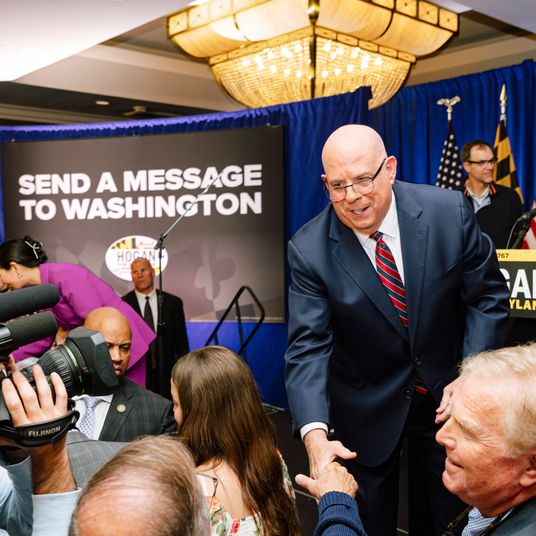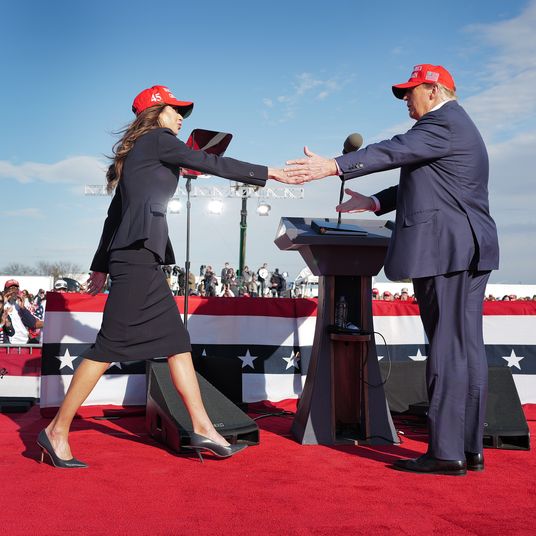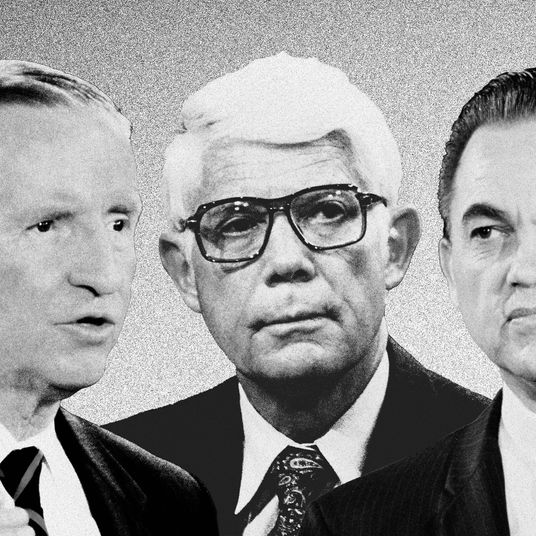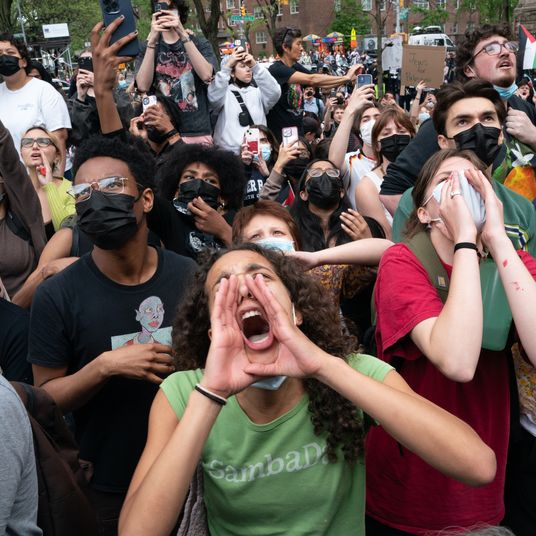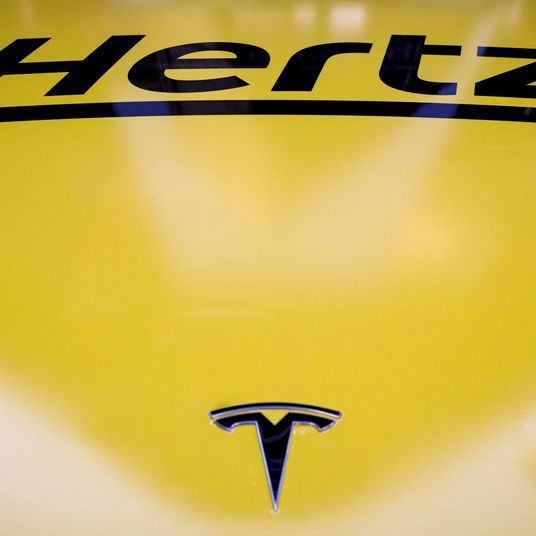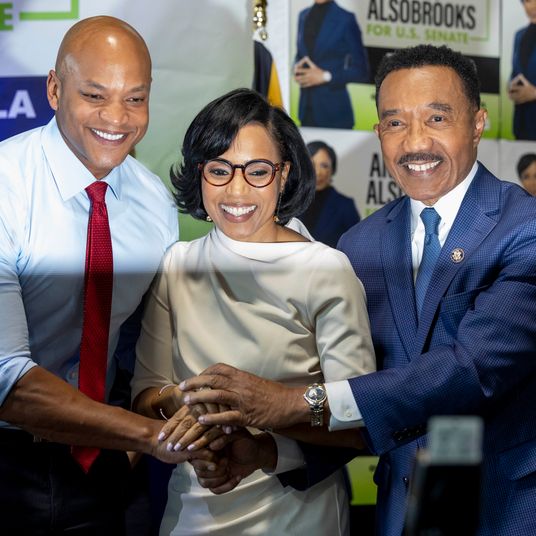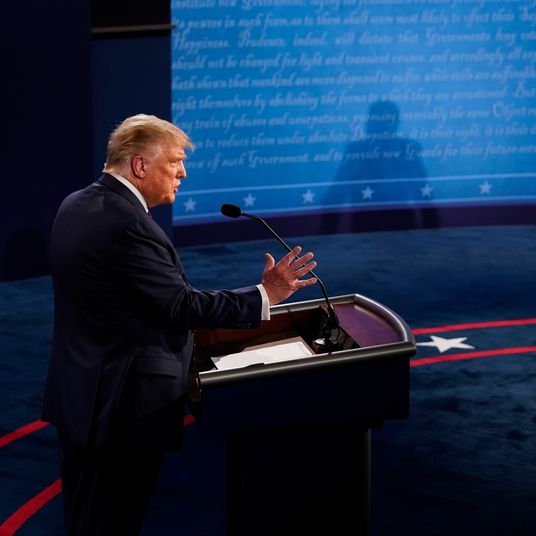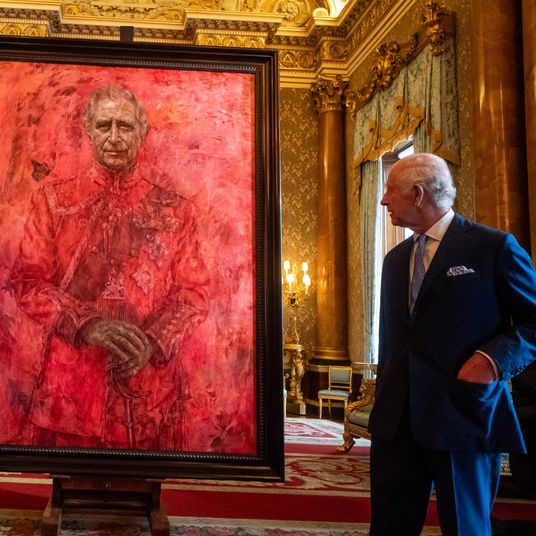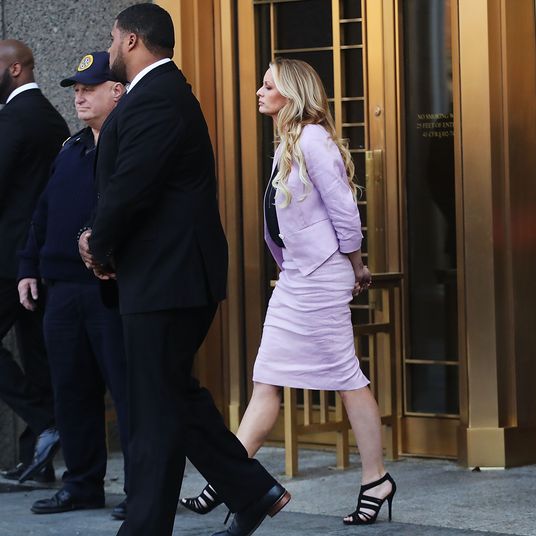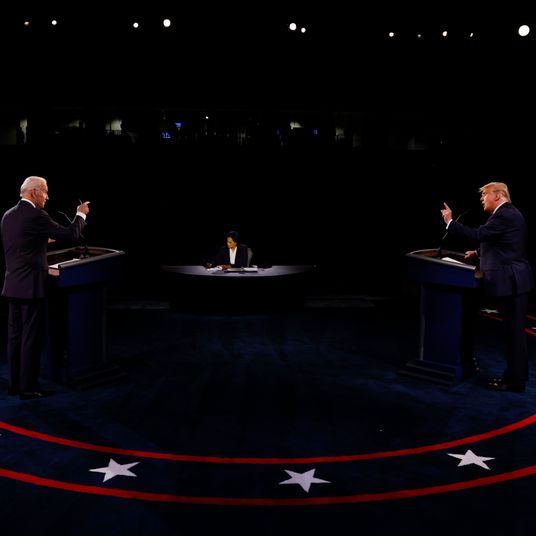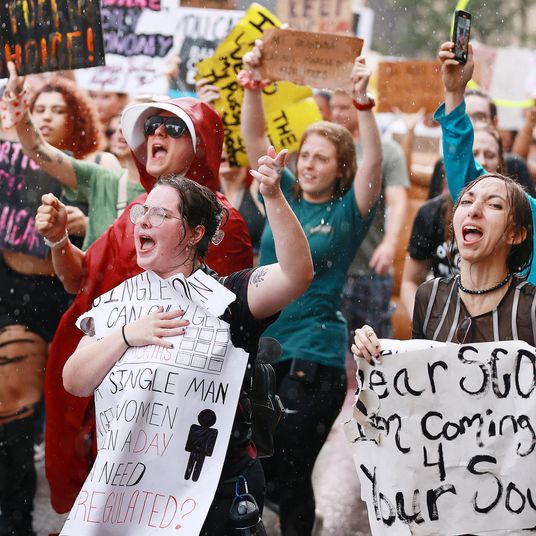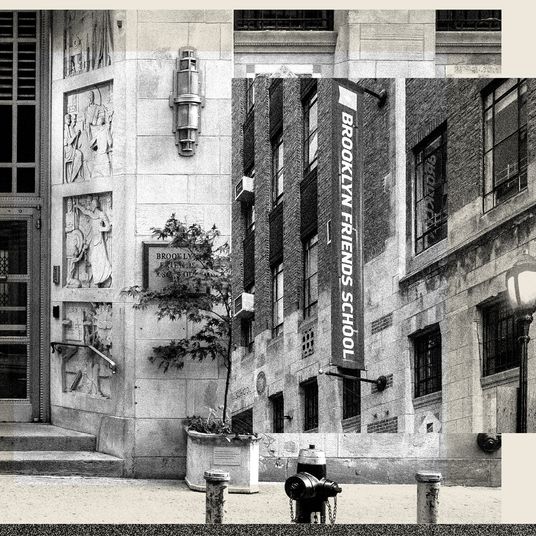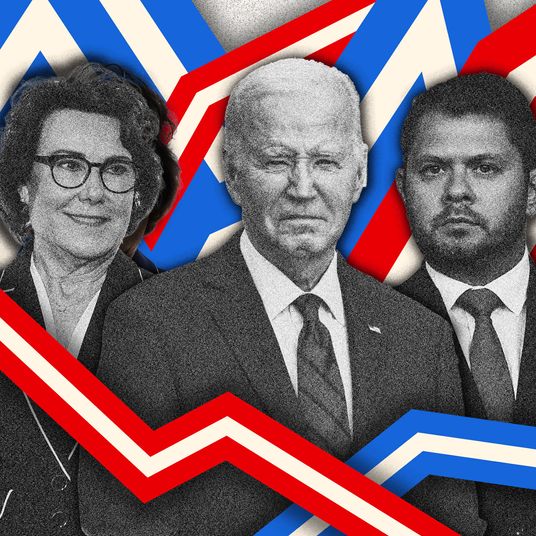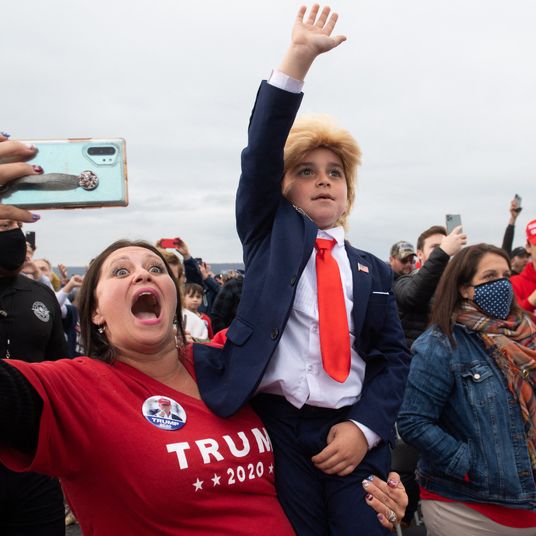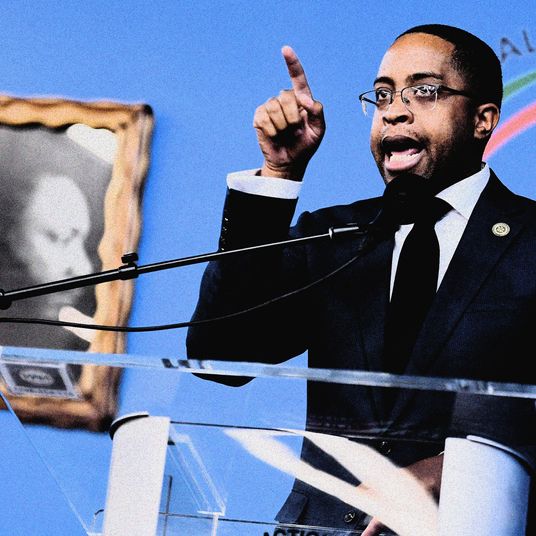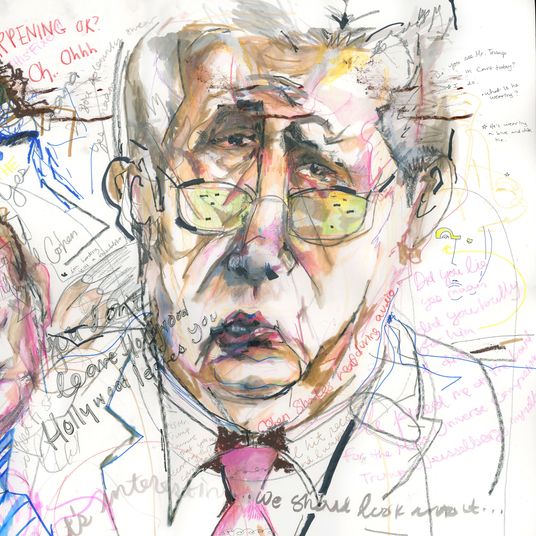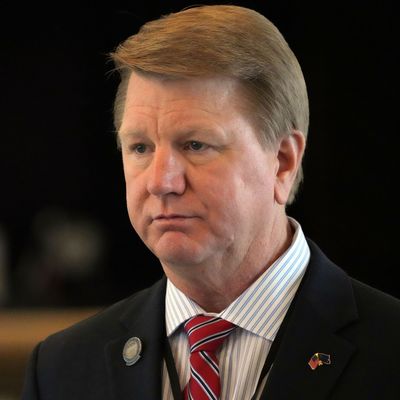
There’s plenty of reason to believe that the same people who attempted to overturn the 2020 presidential election results might try it again. So it’s worth paying close attention to the disturbingly large ranks of 2020 election deniers who are running this year to take over the election machinery in potentially competitive 2024 states (usually secretaries of state, but in some cases governors who appoint chief election officers).
Bolts, an online monitor of voting rights and criminal-justice developments, has published a comprehensive analysis of the 35 states choosing a secretary of state in November (27 via direct secretary of state elections, and another 8 via elections of the officials who appoint secretaries of state). They’ve also identified Republican nominees in these elections who are either “denying the results of the 2020 election, seeking to overturn them, or refusing to affirm the outcome.” There are 17 of these dangerous candidates, and 6 of them are in states that might be in play in 2024. Here they are, in order of their potential importance in determining the next president.
Arizona: Mark Finchem
Finchem is a cowboy-hat-wearing Arizona legislator and a self-identified member of the Oathkeepers, the seditionist organization heavily involved in the January 6 riot at the Capitol. He is one of the best-known election deniers in a state whose Republican Party is loaded with them. Like many of his counterparts, he was endorsed by Trump after active involvement in challenges to the 2020 results, including 2021’s bizarre and unproductive five-month audit that Republican state legislators ordered results in Arizona’s dominant county, Maricopa. As Bolts notes, Finchem hasn’t relented in promoting lies about 2020:
He introduced legislation earlier this year to decertify the last election and “set aside” the ballots in three counties, including Maricopa and Pima counties, which together cover two-thirds of the state, as “irredeemably compromised” — a position he repeated in a debate last week.
He also wants to abolish use of electronic voting machines, eliminate early in-person voting, and vastly restrict voting by mail, which has been very popular in Arizona for many years.
A rare secretary of state poll last week showed Finchem leading Democrat Adrian Fontes (the Democratic incumbent, Katie Hobbs, is in a close race for governor against another election denier, Kari Lake) by a 40-35 margin, with a quarter of the vote undecided.
Arizona was the second-closest state in 2020 (behind Georgia); Biden carried it by three-tenths of a percent.
Nevada: Jim Marchant
Marchant may be slightly less notorious than Finchem, but the former one-term legislator has arguably done more to nationalize election denial by organizing the America First Secretary of State Coalition, to which several of the other candidates on this list belong, and whose Trumpy name illustrates its general orientation. The coalition favors in-person Election Day voting as the rule in future elections, along with “aggressive voter roll cleanup” — code for frequent purges — and abolition of voting machines.
Marchant got into the election-denial business while complaining about his own five-point congressional loss to Democrat Steven Horsford in 2020. He called for a fake Trump elector slate to be sent to Congress prior to January 6, and claims Nevada hasn’t elected any legitimate candidates since 2006. “They have been installed by the deep state cabal,” he says.
The incumbent Republican holding the secretary of state job in Nevada is the term-limited Barbara Cegavske, who infuriated MAGA folk by certifying the 2020 results. Marchant’s Democratic opponent is Cisco Aguilar, who is running as a sensible alternative, though the outcome may depend on how the two party tickets perform in the closely fought Senate and gubernatorial contests.
Nevada was the sixth-closest state in 2020, with Biden winning by 2.39 percent of the vote. But it has been trending Republican.
Michigan: Kristina Karamo
Karamo is a community college instructor who won insta-fame and love from MAGA-land by presenting herself as a witness to election fraud in 2020. Her allegations were largely debunked by the Detroit Free Press and other media outlets. But they endeared her to MAGA-land, along with her extremist positions on other issues, as I noted back in February:
If there were any doubt about her allegiances, Karamo dispelled them the day after January 6, 2021, declaiming: “I believe this is completely antifa posing as Trump supporters … I mean, anybody can buy a MAGA hat and put on T-shirt and buy a Trump flag.” She has opposed COVID-19 vaccines and the teaching of evolution and called public schools “government indoctrination camps.”
She’s also a hard-core opponent of legalized abortion, which endears her to Republican-base activists but not so much to general-election voters.
Karamo was nominated in an activist-dominated state GOP convention, and her prospects for victory in November over Democratic incumbent Jocelyn Benson have depended on the statewide GOP and straight-ticket voting. At present, the statewide ticket is doing poorly as Karamo’s fellow election denier, Tudor Dixon, sinks in her challenge to incumbent Democratic governor Gretchen Whitmer,
Michigan was the seventh-closest state in 2020, with Biden winning by 2.78 precent of the vote.
Minnesota: Kim Crockett
Like Karamo, former small-town Minnesota mayor Crockett was nominated for secretary of state by a party convention enamored of her 2020 election skepticism and a generally extremist profile.
Crockett has a history of nasty anti-immigrant comments, and she linked election denial to antisemitic slurs at the very convention that nominated her to face incumbent Democrat Steve Simon, as the New York Times reported in August:
As a candidate, Crockett was accused of making an antisemitic video that her campaign aired at the Minnesota Republican convention in May. The video depicted George Soros, a billionaire liberal donor, acting like a puppet master over Simon and Marc Elias, a Democratic election lawyer. Soros, Simon and Elias are Jewish.
The chair of the Republican Party of Minnesota, David Hann, apologized after the video was shown. Hann said he had spoken to Crockett and that “the depiction of Mr. Soros was not intended as antisemitic.”
Sure.
As in other states, the down-ballot Crockett depends for victory on the overall ticket, led by gubernatorial candidate Scott Jenson, who is trailing incumbent Democrat Tim Walz by five points in the RealClearPolitics polling averages in this increasingly competitive state.
Minnesota had the tenth-closest presidential contest in 2020, with Joe Biden winning the state by 7.1 percent. But the state has been trending red.
Pennsylvania: Doug Mastriano
Mastriano is the Trump-endorsed Republican gubernatorial nominee in Pennsylvania, a state in which the governor appoints the secretary of state. He is a thorough-going 2020 election denier who was in Washington on January 6 (though he did not enter the Capitol) and encouraged the Pennsylvania legislature to appoint fake Trump electors. He is also, like most of the people on this list, determined to restrict voting opportunities.
Election denialism is actually among the less-prominent controversies associated with Mastriano’s candidacy; he’s a big-time Christian Nationalist and anti-abortion extremist who refuses to talk to reporters who aren’t already in the tank for him. And luckily for Pennsylvania voters, he’s running a terrible and underfunded campaign.
Still, in a midterm election in an evenly divided state with a polarized electorate, Mastriano cannot be counted out entirely. And that is dangerous in terms of what happens in Pennsylvania’s election administration in 2024.
Pennsylvania was the fourth-closest state in 2020, with Biden winning by 1.7 percent of the vote.
Florida: Ron DeSantis
Florida is one of those states in which the governor appoints the secretary of state, and DeSantis — who is up for reelection this year — has made Cord Byrd his election supervisor. As Bolts reports, Byrd is not very friendly to democracy:
Byrd [is] a staunch conservative who had championed the state’s recent voter restrictions while in the legislature. Byrd has refused to say whether he believes the 2020 election results were legitimate, and he has amplified false rhetoric about widespread fraud. The state’s new elections police force resides in the secretary of state’s office, and Byrd was involved in August in trumpeting the criminal charges against 20 people who had been previously allowed to vote for alleged voting law violations.
There are a lot of frightening consequences of a second DeSantis term as governor of Florida, including the strong likelihood that he could be Donald Trump’s successor or even his 2024 rival. But among them is the possibility that this increasingly important state with its 30 electoral votes could again be the locus of a stolen presidential election justified by claims of “election integrity.”
Florida was the eighth-closest state in 2020, with Trump winning by 3.4 percent of the vote.
In a very real sense, the 2024 election begins on November 8, 2022.
More on the 2022 midterms
- Are Democrats the Party of Low-Turnout Elections Now?
- New Midterms Data Reveals Good News for Democrats in 2024
- The Return of the Emerging Democratic Majority?






